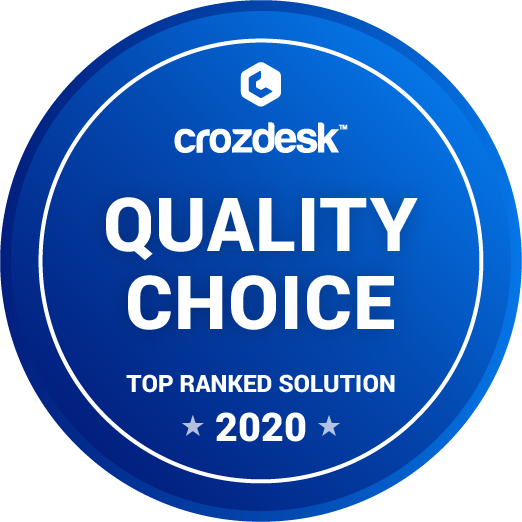
Are you looking to elevate your digital marketing strategies? Data modernization services are essential in this regard by updating outdated data systems with advanced, scalable technologies. Moreover, you can also benefit from data management with enhanced flexibility, accessibility, and scalability, crucial for analyzing large volumes of diverse data and obtaining real-time insights.
This article will explore how data modernization services can transform your digital marketing strategies. Read on!
Data modernization involves upgrading outdated data systems with more advanced alternatives and consolidating various types of data into a single system. It simplifies data management and facilitates the use of sophisticated analytical tools for trend prediction and automated learning.
For digital marketers, these improvements are vital. Customer data management across different platforms becomes so much more manageable, there’s an increase in the quality of data analysis, and you’re supplied with real-time insights. Managed IT services can help businesses navigate the complex process of data modernization. You can learn more about these services at www.resultant.com and similar sites.
The Need for Data Modernization in Digital Marketing
As demands for personalized experiences grow and complex data types increase, modern systems become essential. Data modernization is a strategic necessity, enhancing companies’ agility, insight depth, and competitiveness.
Enhanced customer insights are key in digital marketing and are driven by modern data tools like machine learning and predictive analytics, which depend on sophisticated data environments. How can data modernization help in this area? By allowing businesses to deeply analyze customer behavior, resulting in highly personalized marketing strategies that boost satisfaction, loyalty, and campaign effectiveness.
Key Components of Data Modernization
Data modernization encompasses several technological and strategic components that collectively enhance the digital marketing capabilities of a business. IT support firms in Chicago or in your area can help you navigate the following components of data modernization:
Cloud-Based Solutions
Do you want a modern data architecture? Cloud solutions are the key. Adopting cloud-based storage and processing solutions offers flexibility, scalability, and enhanced security, which are essential for managing large datasets and supporting complex analytics.
Data Integration and Management Tools
To achieve a holistic view of customer data, businesses must integrate disparate data sources. Modern data integration tools enable marketers to consolidate data from various sources, including online transactions, social media interactions, and offline behaviors, into a unified database.
Advanced Analytics and Artificial Intelligence
The use of advanced analytics techniques and artificial intelligence (AI) in digital marketing is significantly bolstered by data modernization. Now, marketers can leverage AI for various purposes, such as optimizing customer segmentation, personalizing content, and predicting future buying behaviors.
How to Unlock Advanced Digital Marketing with Data Modernization
Unlocking advanced digital marketing capabilities with data modernization services can dramatically improve your marketing efforts. Here’s a detailed guide on how to achieve this:
Assess Your Data Infrastructure
Begin by evaluating your existing data infrastructure to identify any inefficiencies or gaps. This assessment should cover how data is collected, stored (whether in the cloud or on-premise), and organized, as well as how clean it is.
Set Clear Objectives
It’s crucial to define clear objectives, such as enhancing customer segmentation, making real-time marketing decisions, scaling personalized marketing, improving the mapping of customer journeys, and optimizing the return on marketing investments. All of these are crucial in your modernization strategy.
Modernizing Data Infrastructure
You may need to migrate to cloud services for better scalability and integration, implement robust data management systems, and use data integration tools to consolidate various data sources.
Implement Advanced Analytical Tools
Advanced tools and software are essential for analyzing data effectively. Implementing AI and machine learning can help predict customer behavior, optimize marketing campaigns, and refine decision-making processes. Tools of interest include predictive analytics, customer data platforms (CDP), automated marketing platforms, and business intelligence (BI) software.
Leveraging Big Data and AI
Big data and AI are critical in transforming digital marketing by enabling real-time data processing, improving predictive analytics, and automating personalized strategies. These technologies also optimize ad targeting and adjust bidding strategies dynamically.
Develop Skills and Capabilities
Make sure your team has the skills necessary to utilize new technologies. This may involve training current staff, hiring new talent with expertise in data science and digital marketing, or engaging with external consultants.
Fostering a Data-Driven Culture
Cultivating a data-driven culture within your organization is vital. This culture should promote regular training on data tools, encourage innovation and experimentation with data, and maintain strong governance and ethical standards.
Monitor, Measure, and Optimize
Continuously monitor and measure the performance of your digital marketing initiatives. Use metrics and KPIs to assess effectiveness and identify areas for improvement, making data-backed adjustments as needed.
Stay Updated with Trends
The digital marketing and data landscapes are continually evolving. Staying informed about the latest technologies, tools, and strategies is essential to maintain and enhance your competitive edge.
Conclusion
Data modernization is a critical step for businesses that want to enhance their digital marketing capabilities. This is a fact if you want not just new and better opportunities for customer engagement, but also more precise targeting and more effective response to market dynamics. And as days pass and technology continues to evolve, the importance of successful data modernization only becomes clearer. Here’s to innovative, effective, and efficient digital marketing strategies!
Raghav is a talented content writer with a passion to create informative and interesting articles. With a degree in English Literature, Raghav possesses an inquisitive mind and a thirst for learning. Raghav is a fact enthusiast who loves to unearth fascinating facts from a wide range of subjects. He firmly believes that learning is a lifelong journey and he is constantly seeking opportunities to increase his knowledge and discover new facts. So make sure to check out Raghav’s work for a wonderful reading.




